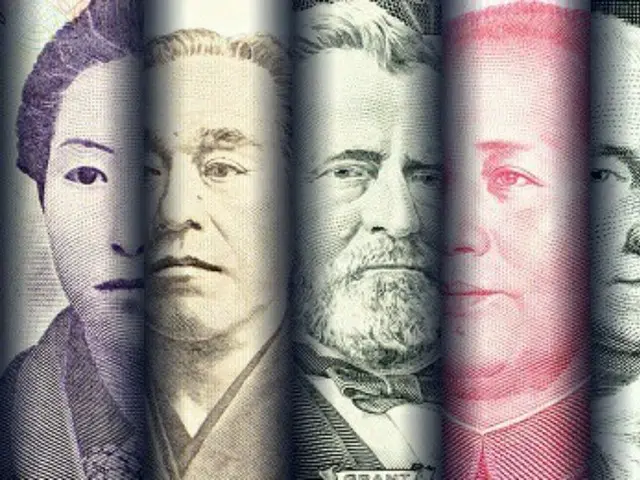In addition, the dollar continues to appreciate globally, causing exports, which have been the backbone of the Korean economy, to stagnate, further exacerbating the won's depreciation.
There are fears that if the new normal era comes, a warning sign will be lit for the Korean economy. According to MPDoctor, the exchange rate on this day was 1.30% higher than the closing price of the previous trading day as of 3:30 p.m.
The rate closed at 1,385 won per dollar, down 3.7 won. It briefly hit 1,391.5 won during trading, and has fallen by about 1.5% since hitting a record high of 1,391.9 won during trading on July 3.
It was close to its highest level in three months. At the end of September, the exchange rate had fallen to 1,303.4 won per dollar during trading. But since the start of October, the exchange rate has risen every day except for three days.
The won rose sharply to the 1,390 won range. In other words, it rose by nearly 100 won in less than a month. Both domestic and international uncertainties fueled the rise in the won against the dollar.
With the US presidential election just a week away, the chances of former President Trump winning are increasing, and so are the so-called "Trump trades" (investments in assets that will benefit if Trump wins).
Due to this phenomenon, there is a noticeable tendency for funds to be concentrated in the dollar, which is a safe asset. If Trump is elected president, he will impose a 20% universal tariff, and the market will see a large-scale issuance of U.S. government bonds.
There are concerns that the imposition of large-scale tariffs on trading partners will be an inflationary factor. If interest rates rise as a result, this could lead to the United States keeping interest rates unchanged.
This will encourage the dollar to rise. The dollar is also supported by the political uncertainty in Japan. Prime Minister Shinzo Ishiba's Liberal Democratic Party is expected to lose in the Lower House election on the 27th due to a political funding scandal.
The government failed to secure a majority in the Diet. In response, the yen was sold on concerns that the Bank of Japan's interest rate hike was on the way out, which encouraged dollar buying. The dollar/yen exchange rate on this day rose to the 153 yen range,
The price of rice exported from Korea to the U.S. dropped to its lowest level in three months. This suggests that exports from Korea are slowing down. According to the Korea Customs Service, the average daily export value from October 1 to 20 was 1.2 times lower than a year ago.
This represents an increase of just 1%, a significant decrease from the 18.5% and 18.0% increases recorded in August and September, respectively, over the same period.
With the momentum of domestic demand recovery still unclear, even exports, which had been performing well, are faltering.
If this happens, the view that the Korean government's optimistic view of the economy will have to be revised is growing. In fact, the real GDP growth rate for the third quarter of this year is expected to be 0.4%, which is lower than the Bank of Korea's forecast.
The rate was only 0.1%, far below the 1.5% target. Once the US presidential election is over, the exchange rate is likely to surpass the 1,400 won per dollar mark again in the short term.
There is a strong view that if the exchange rate continues to rise and remains in the 1,400 won range rather than just rising sharply, it will have a negative impact on the Korean economy.
Moon Hong-cheol, a researcher at iM Securities, said, "We are concerned about whether the exchange rate will surpass 1,400 won per dollar again in the short term.
"The most important uncertainties that will determine whether or not the US will be able to thrive are the price of crude oil and the outcome of the US presidential election," he said, adding, "The exchange rate could exceed 1,450 won per dollar due to a sudden rise in crude oil prices or the realization of the Trump risk."
"If rates were to materialize, it would pose a risk to the stock market and the economy."
2024/10/29 07:19 KST
Copyrights(C) Edaily wowkorea.jp 107

